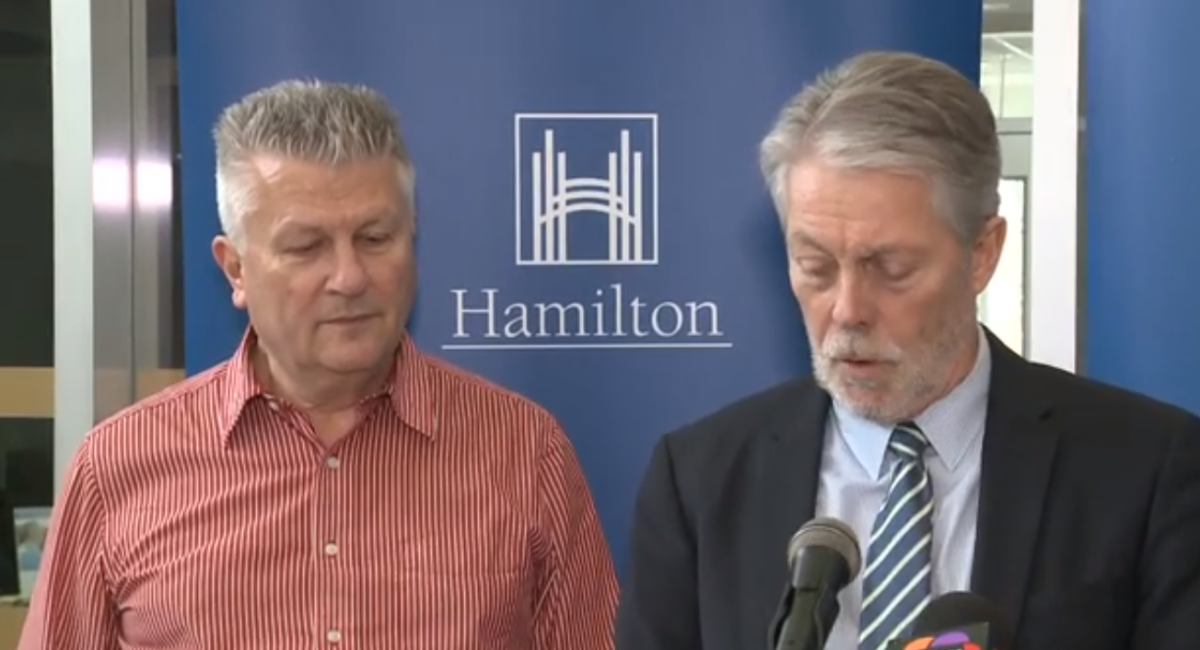A nurse who worked with dialysis units at two Hamilton hospitals is the latest health-care worker to test positive for the new coronavirus in the city.

Hamilton Public Health (HPH) says the nurse last worked at the St. Joseph’s Healthcare Hamilton’s (SJHH) dialysis unit at the Charlton campus on Friday, March 20, and also provided dialysis care at Hamilton Health Sciences’ (HHS) General Hospital, the day before.
Officials with the city’s health unit say they have few details at present about the nurse, particularly age and gender, but did say it was a younger worker who followed protocols and wore personal protective equipment, including a face shield, procedure mask and gloves.
The nurse did not have symptoms at work.
HPH says the nurse was at home when they began experiencing symptoms on Saturday, March 21 and was told not to return to work.
The nurse – now at home in self-isolation – received a positive result on Wednesday and is currently experiencing mild symptoms.
Public health says it is actively tracing back individuals who made contact with the nurse at both SJHH and HHS. It does not have a number of how many patients may have interacted with the nurse.
An oncologist with the Juravinski Cancer Centre was the first Hamilton health-care worker to test positive for COVID-19 on March 11.
The 32-year-old physician, who works with the Juravinski Hospital, returned from Hawaii and became symptomatic just two days after her return.
Hamilton has 43 COVID-19 positive cases as of Thursday afternoon, according to public health.
Questions about COVID-19? Here are some things you need to know:
Health officials caution against all international travel. Returning travellers are legally obligated to self-isolate for 14 days, beginning March 26, in case they develop symptoms and to prevent spreading the virus to others. Some provinces and territories have also implemented additional recommendations or enforcement measures to ensure those returning to the area self-isolate.
Symptoms can include fever, cough and difficulty breathing — very similar to a cold or flu. Some people can develop a more severe illness. People most at risk of this include older adults and people with severe chronic medical conditions like heart, lung or kidney disease. If you develop symptoms, contact public health authorities.
To prevent the virus from spreading, experts recommend frequent handwashing and coughing into your sleeve. They also recommend minimizing contact with others, staying home as much as possible and maintaining a distance of two metres from other people if you go out.
For full COVID-19 coverage from Global News, click here.
- Canadian man dies during Texas Ironman event. His widow wants answers as to why
- Invasive strep: ‘Don’t wait’ to seek care, N.S. woman warns on long road to recovery
- ‘Sciatica was gone’: hospital performs robot-assisted spinal surgery in Canadian first
- ‘Super lice’ are becoming more resistant to chemical shampoos. What to use instead





Comments